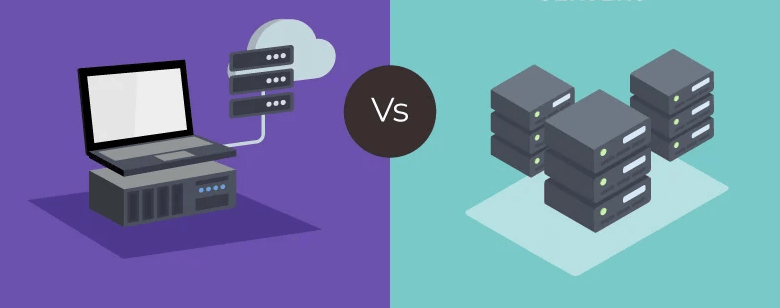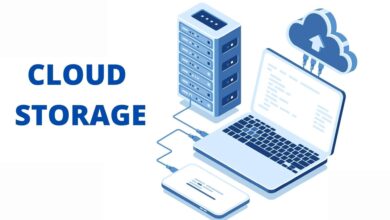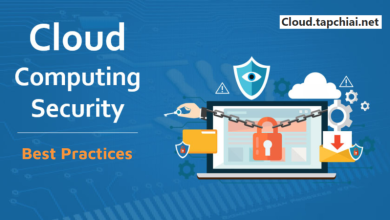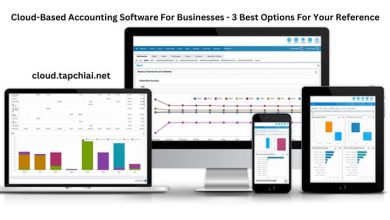Comparing dedicated server vs private cloud: Which is best for you?

Businesses that use applications like websites, mobile apps, or corporate software require a top-notch server infrastructure that can host their resources and carry out difficult tasks without fail or lag time.
There are numerous server alternatives available on the market that support this and use physical servers, virtual servers, or hybrid infrastructure configurations.
Since they all essentially accomplish the same thing yet have different technical requirements and different business objectives, picking the best hosting service among them can be challenging.
Comparing the precise distinctions between dedicated server vs private cloud? Uncertain which is best for you? For your organization’s needs, this guide discusses how to contrast dedicated server vs private cloud.
Contents
What is Private Cloud?
A private cloud is a type of cloud computing where a single user organization has exclusive access to the infrastructure. An organization’s data center, a third-party colocation facility, or a private cloud provider who provides private cloud hosting services and may or may not also supply typical public shared multi-tenant cloud infrastructure are all options for hosting a private cloud.
As with a standard on-premises infrastructure, the end-user company is often in charge of running a private cloud, which involves ongoing upkeep, upgrades, OS patches, middleware, and application software administration.
Although using a private cloud solution requires significantly more IT experience than using a public cloud, it does give enterprises more control over and better security for their private cloud servers.
What is Dedicated Server?
A private web hosting service is dedicated server. You are the only user of the server. It is also known as single-tenant hosting because all server resources belong to a single client.
In dedicated server, the client is in complete charge of the setup and configuration. One of dedicated server’s main advantages is that:
- Numerous options for customization: With dedicated server, you have total control over the server. You can adjust your hardware components based on your business objectives and requirements (such as RAM, CPU, and storage options).
- Security: Dedicated servers offer an isolated environment, allowing you to swiftly lock down your server and block access to the data in the event of an attack.
- Access to a Variety of OS Options: With dedicated server, users can install several operating systems in accordance with their company needs. Linux or Windows Server OS are two examples.
Choosing Between Dedicated Server vs Private Cloud
Both dedicated server vs private cloud carry out the same tasks, which is how they are comparable. For instance, they accept requests, store and provide access to information using similar backend tools and software.
The performance and fulfillment of various use cases and requirements is where the differences lie.
Five factors will be compared between dedicated server vs private cloud.
1. Security
Organizations worried about security have fantastic options in dedicated server vs private cloud. Both of them provide secluded settings that reduce the security hazards posed by unruly neighbors.
The distinction ultimately comes down to other elements, such cost-effectiveness and the size and expertise of your IT team. If your IT team is tiny or lacks specialized cloud engineering expertise, private cloud is a better choice. The majority of managed private cloud solutions enable you take advantage of separated access and great performance while they provide setup and maintenance services.
You can combine resources from two or more physical servers into a single pool of resources that can be dispersed over a particular number of virtual machines using Liquid Web’s VMware Private Cloud.
By allocating your resources through virtual machines, you may isolate management access from security restrictions and assign them to the virtual machines, resulting in additional protection layers.
2. Cost-Effectiveness
Many big firms can afford dedicated server because of its low cost. Upgrades to the personalization, however, might be pricey.
Private cloud hosting, on the other hand, has high upfront setup expenses but pays off over time.
Consider setting up a private cloud host in a multi-tenant environment, such as VMware. In that situation, since public clouds can contain a lot of hidden fees, it may actually be less expensive than paying for shared hosting on someone else’s servers.
3. Configurability
Since you have access to the hardware directly, you may easily configure dedicated servers without any constraints from the host.
VMware setup can be rather complicated unless you’re currently using it and migrating virtual machines somewhere else. But if you choose a managed hosting package from Liquid Web, we‘ll take care of managing your infrastructure and virtual machines for you.
4. Reliability and Performance
Both dedicated server vs private cloud will deliver great performance.
Customers looking for solutions that prioritize speed and CPU-intensive workloads are advised to use dedicated servers. Customers are given direct access to the hardware, and data processing and information retrieval are done locally, preventing information delays.
A specialized hardware component known as a storage area network allows a private cloud to operate with speedy and dependable performance (SAN).
When your storage requirements increase, you can expand the SAN’s scalable, high-performance storage. Since there may be a trade-off between local access performance and the SAN’s network performance, you might need to modify the SAN to satisfy performance requirements.
5. Scalability
Although dedicated servers offer excellent performance potential, such potential is constrained by the physical hardware and available space in their architecture. To add or alter its components, such as processors, RAM, or storage, requires additional effort and time. These improvements frequently necessitate downtime.
On the other hand, because data storage is split across virtual and physical servers, private cloud may be scaled more readily. You can quickly upgrade (or reduce) resources if you require more (or less) storage. Additionally, you can scale with little to no downtime thanks to the private cloud’s technology.
Conclusion
Given that both dedicated server vs private cloud may carry out comparable tasks, making a decision between them might be challenging. According to the intended usage, there are varied needs for scalability, security, performance, configurability, and budget.
Please read: http://cloud.tapchiai.net/cloud-and-dedicated-cloud-server-providers/
Conclusion: So above is the Comparing dedicated server vs private cloud: Which is best for you? article. Hopefully with this article you can help you in life, always follow and read our good articles on the website: Cloud.tapchiai.net







